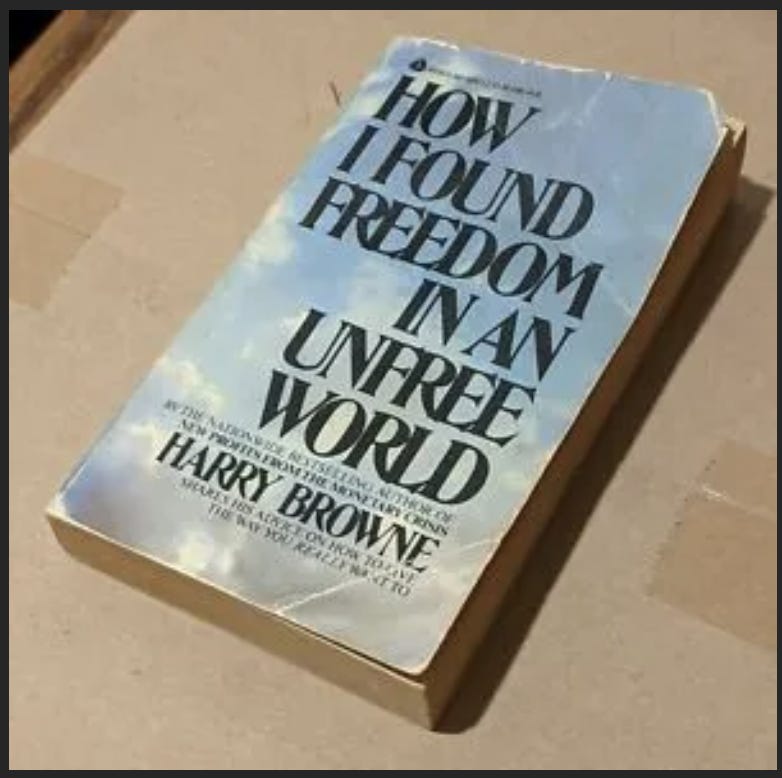In Harry Browne's excellent "How I Found Freedom in an Unfree World", Harry outlines a number of strategies to break free from the confining realities of the day. Harry was a friend and mentor to Doug Casey and we recommend the book.
Written in 1973 and updated 1998, Harry doesn't envisage just how 'Unfree' the world would become. And not just 'Unfree', but fragile too.
Doug Casey's Phyle is a group of like-valued people working to find freedom in today's world; a world where the screws are tightening and risks range from plandemics to economic collapse and even world war.
One important way to find freedom today as well as in Harry’s day is to remove yourself from systems of coercion and constraint.
Systems of Coercion
Total reliance on any centralized system can pose a risk to you and your family in at least two ways.
Systems fail. Most of us are accostomed to everything working. But, that is not the natural state of affairs. If they’re not wisely maintained, systems break down over time. Currencies, power grids, supply chains, etc. All can stumble and fall apart leaving those dependent on them in the dark - literally.
Your dependence leveraged against you. Dependence can and will be used as a choke point by out of control authorities to gain your “voluntary compliance”.
Recent Examples of How Dependence Can Be Turned Against you
Dependence on employment income was leveraged to “encourage” participation in the largest medical experiment known to mankind. Like your Job? Take the Jab!
Dependence on the banking system was used to crush individuals directly and indirectly involved in supporting the (actual) peaceful Canadian trucker protests.
Anyone subject to power outages, price shocks, lockdowns & more know well the risk of dependency.
We’re not advocating total Independence. It’s not possible or even desirable. But, it’s important to understand - in advance - where the potential choke points are in your life so you can take action to mitigate the worst.
In this private session for Phyle members, we break down dependencies into three categories: products and services, income and balance sheet, and people in politics. We also provide a framework for assessing your particular risk as a prerequisite to developing your personal plan.



